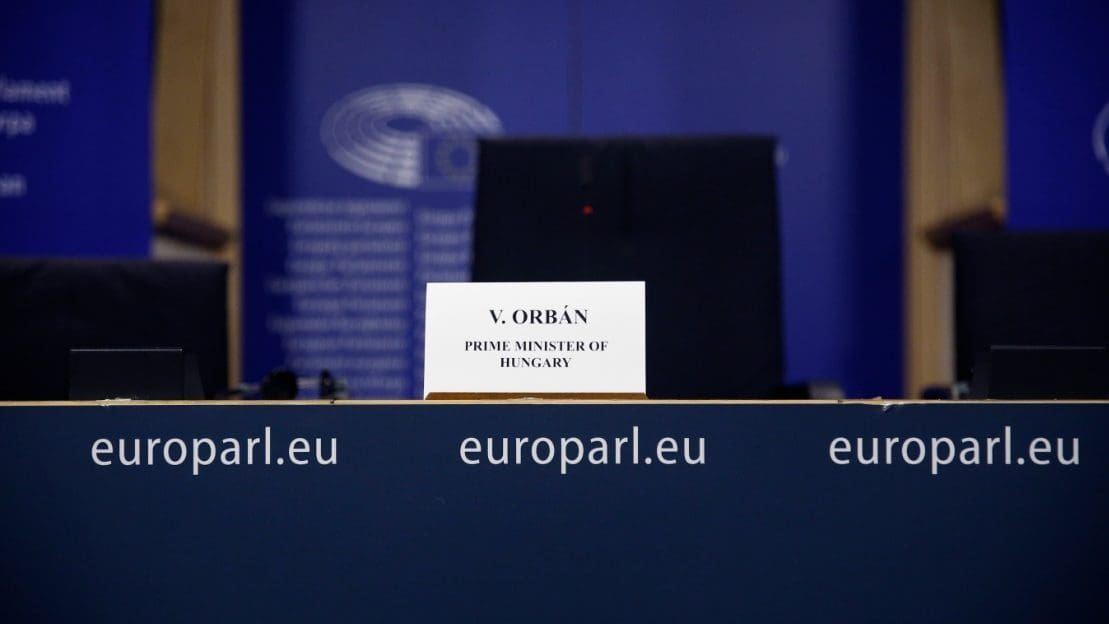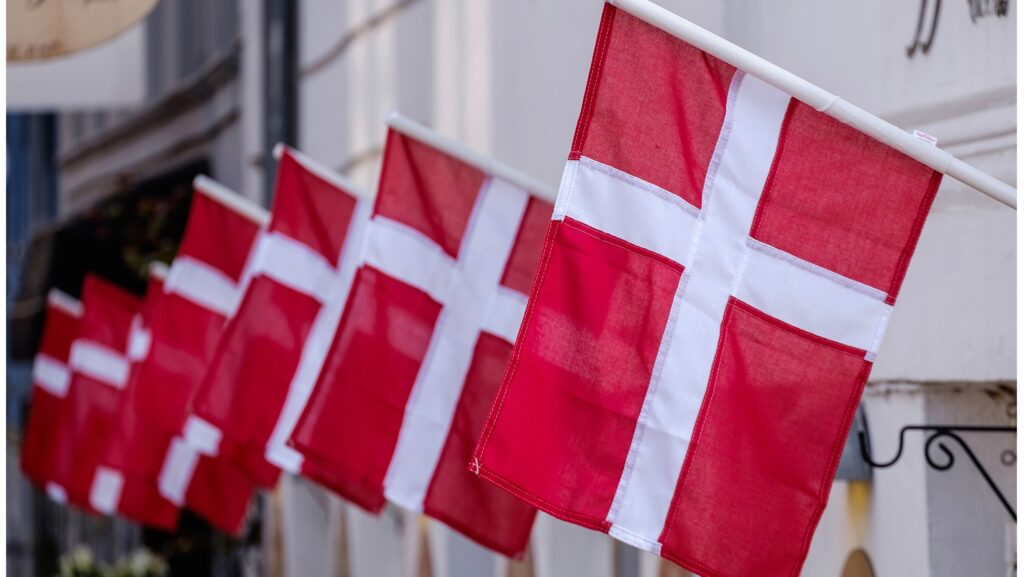This March, a long and painful struggle finally cam to end. The twelve Fidesz MEPs decided to leave the Group of the European People’s Party (EPP) after a raft of amendments to its internal rules of procedure was put to a vote and adopted. These amendments, under certain circumstances, could mean that elected members of the European Parliament might be impeded or limited in the exercise of their full range of rights. The Fidesz MEPs not only deemed these amendments a serious departure from democratic norms, but also consider the debate and vote on them untimely and inappropriate, taking place as they did during Europe’s worst crisis since the Second World War. This manoeuvre was not acceptable to the members of the Hungarian delegation, but one has to dig deeper to understand the long path that has ultimately led to this parting of ways between the EPP Group and the Fidesz delegation.
The past decade or so has turned out to be an exceptionally turbulent and difficult period in the history of the European Union and its development. Firstly, integration has been faced with external economic, security, public health, and other challenges it has never confronted before. Secondly, it has had to accommodate internal perspectives and narratives that had never been taken into consideration before. While the EPP, as the spiritual continuation of the Christian Democratic tradition, has always been at the heart of the European process of development, it finds it increasingly difficult to remain true to its values in the face of external challenges, and is becoming unable to accommodate different European perspectives. This is especially the case with the EPP Group in the European Parliament, whose leading role is melting away.
Unlike earlier phases of integration, which could be characterized as having taken place during a period of relative socio-economic prosperity and peace in Western Europe, the last decade has been an era of crisis. The series of crises began with a protracted financial and economic downturn that also highlighted the economic vulnerabilities of the South as more acute than those of the North. A migration crisis followed, together with a proliferation of terrorist attacks across the continent. It revealed the different perspectives held by the West and the East regarding the future directions of European integration. The growing mistrust towards the aspirations of the ‘Brussels Bubble’ to accelerate political integration at the expense of member states led to the Brexit vote. That not only deprived the EU of its original dream of an integrated Union that would one day encompass the entire continent from the Atlantic to the Urals, but also weakened the EU economically, militarily, and culturally. Finally, the last chapter of the ‘decade of crises’ came in the form of the COVID-19 pandemic, which exposed the EU as unprepared and fragile, and which continues to pose challenges that the EU is unable to adequately address, let alone resolve. This crisis period has not united Europeans behind the EU, but rather divided them. Quite aside from this ‘decade of crises’, Europe has not been in its best shape for the past thirty years. In fact, it is in decline in terms of reproduction rate, defence spending, and its relative weight in the global economy.
Against this backdrop, the last decade was, and still is, the first major test for the EU as well as for the EPP Group in the history of the Union. This is also the first time in recent history when Europeans have had the opportunity to address these challenges on their own, without the interference or threat of outside powers. At the same time, this also entails a responsibility to reflect on what has transpired, and to make the necessary alterations in the European political sphere. This is true for Christian Democracy as well as for the other European political philosophies and movements. What I see now is—pace Erich Maria Remarque—all turmoil on the Western Front. European politics is struggling to find answers to the new challenges of the old continent. There are also debates and disagreements within the political families.
A particular characteristic of the EU political life is the existence of political families that are made up of national delegations. These national delegations that belong to the same political family do not necessarily agree on every policy question, or even on the overall political directions. Political families in the European Parliament are much less homogenous than political parties in national assemblies. Europe is a land of contrasts in a geographical and cultural sense, and these national delegations likewise bring along colourful fora for fruitful debates. However, it is also true that every political family in the European Parliament is an arena for internal struggles between progressive aspirations to transform the EU into a federation, and a more pragmatic approach that favours the interests of the nation states. Over the last decade, the mainstream of the EPP Group has gravitated towards the former group, and now it finds increasingly difficult to come up with answers to the current challenges while remaining true to Christian Democratic principles.
‘The growing mistrust towards the aspirations of the “Brussels Bubble” to accelerate political integration at the expense of member states led to the Brexit vote’
Besides the shifting European political landscape, the mainstream of the EPP Group struggles to accommodate the various perspectives and narratives within its own political family. It ignores, in particular, the differences in perspective between those member states that joined the EU before the Eastward enlargement, and the Central European countries that joined in 2004. While the Eastward enlargement fulfilled the hopes of Central European citizens, and their own views, cultural attitudes, mentalities, and approaches. This diversity could make European political families vindicated the raison d’être of the regime changes of 1989–1990, misunderstandings between the ‘two Europes’ still linger. We see the Union through different lenses because we have different past experiences, as well as different expectations with regard to European integration. For Western European countries, integration was a reaction to the horrors of the Second World War, and they have since been wary of nation states. From their perspective, European integration has turned out to be a success story as it has brought them peace. The historical experience of the Central European region is, however, quite different, since these countries lived under a series of totalitarian regimes. What ultimately saved and protected them was their national identity. The nation was their lifeboat during times of oppression by foreign empires. Therefore, Central Europeans are strongly attached to the cultures, traditions, and identities of their nation states in the face of contemporary threats such as mass migration. From their perspective, European integration is far from successful if it is unable or unwilling to provide the nations of Europe with the capabilities and leverage they need to protect themselves. Unfortunately, since the reunification of Europe, the mainstream of the EPP Group has struggled to nurture and provide a pluralistic platform that would allow for inclusive debates and reinforce mutual understanding between the two European viewpoints. The strength of Europe has always lain in its heterogeneity, or as the motto of the EU puts it: ‘unity in diversity’.
‘What justifies European cooperation is both the benefits it can bring to the citizens of Europe and the leverage it can provide for its member states’
However, a majority of the EPP Group has squandered the opportunity to make use of this rich resource. Instead, it prefers a one-sided discourse that moves towards and is increasingly willing to make compromises with the agenda of the political Left. The constant threats of the activation of the rule of law mechanism to punish national constitutional systems, even in the midst of the coronavirus pandemic, are symptomatic of this perspective. The EU is using the single market as a stepping-stone to extend its competences into areas where political and moral values are more salient. However, it is important to bear in mind that Europe’s roots are historical rather than philosophical. While Hungary wants to protect European Christian values, it has come under attack from the political Left and increasingly from the majority of the EPP Group over abstract and ideological values couched in the term ‘rule of law’. Abstract philosophical ideas such as a unified conception of the rule of law have no place in Europe’s intellectual tradition. Indeed, this idea is alien to the traditions of European nations, and those who seek to propagate and activate it will also attempt to subjugate those European traditions and values. I am afraid that the ‘Brussels Bubble’ is about to eat up the EPP Group, which seems increasingly willing to abandon these European values.
The difficulties the mainstream of the EPP Group has in accommodating the different conservative viewpoints that could foster Christian Democratic principles, and its lack of tolerance for diversity, have become obvious in the run-up debate to the Conference on the Future of Europe. From this perspective, the contrast between the position paper of the EPP Group and that of the Hungarian delegation is quite striking as it reveals the fundamental differences in their respective approaches towards European integration. The majority of the EPP Group prefers to see integration through an ideological lens, sharing many of the aspirations of the political Left when it comes to the establishment of a federative system. Thus, for the majority of the EPP Group, integration is an end goal in itself. By contrast, the Hungarian delegation favours pragmatism over ideology, and sees European integration, along with its institutions such as the EPP and the EPP Group, as powerful instruments capable of making the European nations economically and culturally more prosperous, as well as more able to face current global challenges and threats. For us, the EU is a spiritual and economic alliance, bound together by a shared civilization, and serves the interests of both European nations and their citizens. What justifies European cooperation is both the benefits it can bring to the citizens of Europe and the leverage it can provide for its member states. In our view, integration has ‘two faces’: whilst serving the interests of its citizens, the Union starts and ends with its member states. One concrete example that sheds light on the difference between the two approaches is how each one thinks about the need to increase the role of parliamentarism in Europe. While the majority of the EPP Group only envisages the role of parliamentarism at the European, supranational level, the Hungarian delegation wishes to enlarge the role of national parliaments, providing them with an active role in the legislative processes of the EU.
These irreconcilable differences between the approach taken by the mainstream of the EPP Group and that of the Hungarian delegation have finally led to a split which, I think, was unavoidable. Losing its most successful delegation will certainly hurt the EPP. Fidesz, on the other hand, may well feel a new sense of freedom in confronting fresh challenges. However, far from being the end, this is rather the beginning of a period of reflection for both groups. Unless the EPP Group rethinks its role in European politics, and unless it decides to reassume its Christian Democratic mission, it will soon be entirely absorbed into the political Left. Fidesz, on the other hand, needs to revive the Christian Democratic tradition and reorganize European politics accordingly. In the words of Ovid, ‘[e]ither do not attempt at all, or go through with it’. The mission of Fidesz is now nothing less than to go through with it completely.








